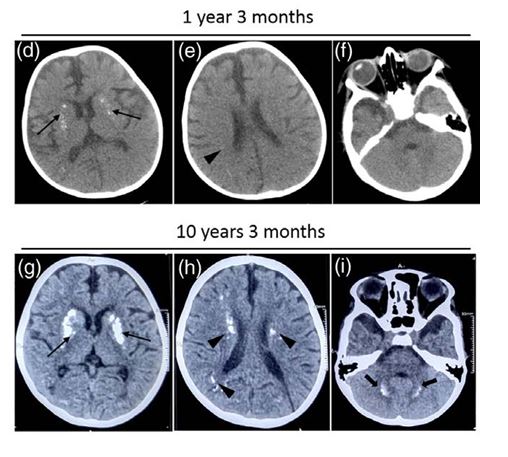New Delhi, Nov 27 (IANS): Indian scientists have reported the country’s first case of a rare USP18 gene mutation associated with repeated neurological deterioration in children. The finding sheds new light on Pseudo-TORCH syndrome type 2 — an extremely rare inherited disorder previously documented in just 11 cases worldwide.
The research was conducted by specialists from the Indira Gandhi Institute of Child Health (IGICH) in Bengaluru, in collaboration with Ramjas College, University of Delhi, and Redcliffe Labs. Their study, published in Clinical Dysmorphology, describes a previously unreported variant of the USP18 gene, c.358C>T (p.Pro120Ser), expanding global understanding of the condition.
Pseudo-TORCH syndrome type 2 affects brain growth and function, producing severe neurological symptoms resembling congenital infections, despite no infection being present. The USP18 gene normally regulates immune activity and prevents excessive inflammation. When this gene malfunctions, the immune system becomes overactive and begins damaging the brain.
“This discovery underscores the power of combining clinical insight with advanced genetic testing,” said Dr. Vykuntaraju K. Gowda, Department of Pediatric Neurology, IGICH. “For years, we treated symptoms without clarity. Identifying this novel mutation has transformed the child’s diagnosis and future care.”
Dr Gowda added that the finding will help avoid unnecessary treatments, enable more precise interventions, and guide families through appropriate genetic counselling.
The breakthrough emerged during the evaluation of an 11-year-old girl who had experienced symptoms since infancy, including recurrent febrile encephalopathy (fever-linked unconsciousness), seizures, developmental delays, and microcephaly. Her brain scans over the years showed progressive calcium deposits.
To pinpoint the cause, doctors conducted exome sequencing along with mitochondrial genome analysis, ultimately revealing the novel USP18 mutation. This genetic change alters the structure of the USP18 protein, reducing its ability to suppress inflammation—explaining the child’s repeated episodes of fever-triggered neurological decline.
Recognising this mechanism is critical, researchers noted, as it helps clinicians avoid misdiagnosing the condition as an infection and instead focus on immune regulation and early intervention.
“This is the first reported case of USP18-related disease presenting with recurrent febrile encephalopathy,” added researcher Dr Himani Pandey.
The study highlights the importance of early genetic testing in children with unexplained neurological symptoms and paves the way for more targeted care strategies in the future.
—IANS










